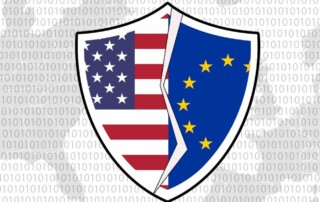The ICO Issues data protection guidance for AI, but do we now need an AI solution to implement it?
The ICO has released it's data protection guidelines for building and deploying AI systems. But given the manual burden of implementing some of the suggestions for a complex technology, shouldn't there be support tools from the ICO too?
GDPR | CCPA – 10 Steps to Designing the Right Data Protection Program
In this article I discuss ten steps to build a successful data protection program to comply with GDPR, CCPA and NY Data Shield Acts.
Privacy Shield is Struck Down, What Now?
The EU-US Privacy Shield is ruled invalid, In this post we talk about the details of the ruling by the ECJ and what this means going forward.
Privacy Settings Control Center Form
Interactive Privacy Form Samples [...]
Twelve Steps to Protect Public Sector Organizations from the Latest Security Threats
In a recent report by the Guardian on the NHS data breach last May which saw hundreds of NHS systems in the UK infected by the Wannacry ransomware virus, it’s reported that a £100,000 ransom was paid to unlock systems and that more worryingly, the cost of the breach is still unknown but continues to rise. With the alarming increase in threats to privacy like ransomware and the potential for hefty GDPR non-compliance fines after May 2018, the risks to public sector operations has never been greater. In this 35 minute interactive session, Paul Rogers a cybersecurity expert takes a look at the latest privacy challenges in an easy to understand fashion that will help you formulate a robust plan ahead of the GDPR compliance deadline. We will look at specific threats to industrial control systems, legacy risk, recent case history, examples of good data privacy implementations and a high-level process road map to set direction for your compliance program.
Ten Steps to GDPR Readiness Presentation
In a recent survey conducted for Mazars on Irish Businesses on GDPR readiness, only 16% of businesses had actually mobilized a project to meet the upcoming deadline. While 82% of respondents agreed that meeting requirements would be challenging to extremely challenging. In this 35 minute session, Paul Rogers a compliance expert speaker and fintech business owner, will take a look at the challenges that Irish businesses face when it comes to GDPR and 10 practical steps that stakeholders can do to be ready for the May 2018 deadline. He will look at internal governance, consumer self service models, trans-border data transfers, privacy shield, NIS directives, policy readiness and more. He will also cover common compliance failures and data protection commissioner case history reports which will help you stay clear of trouble.






